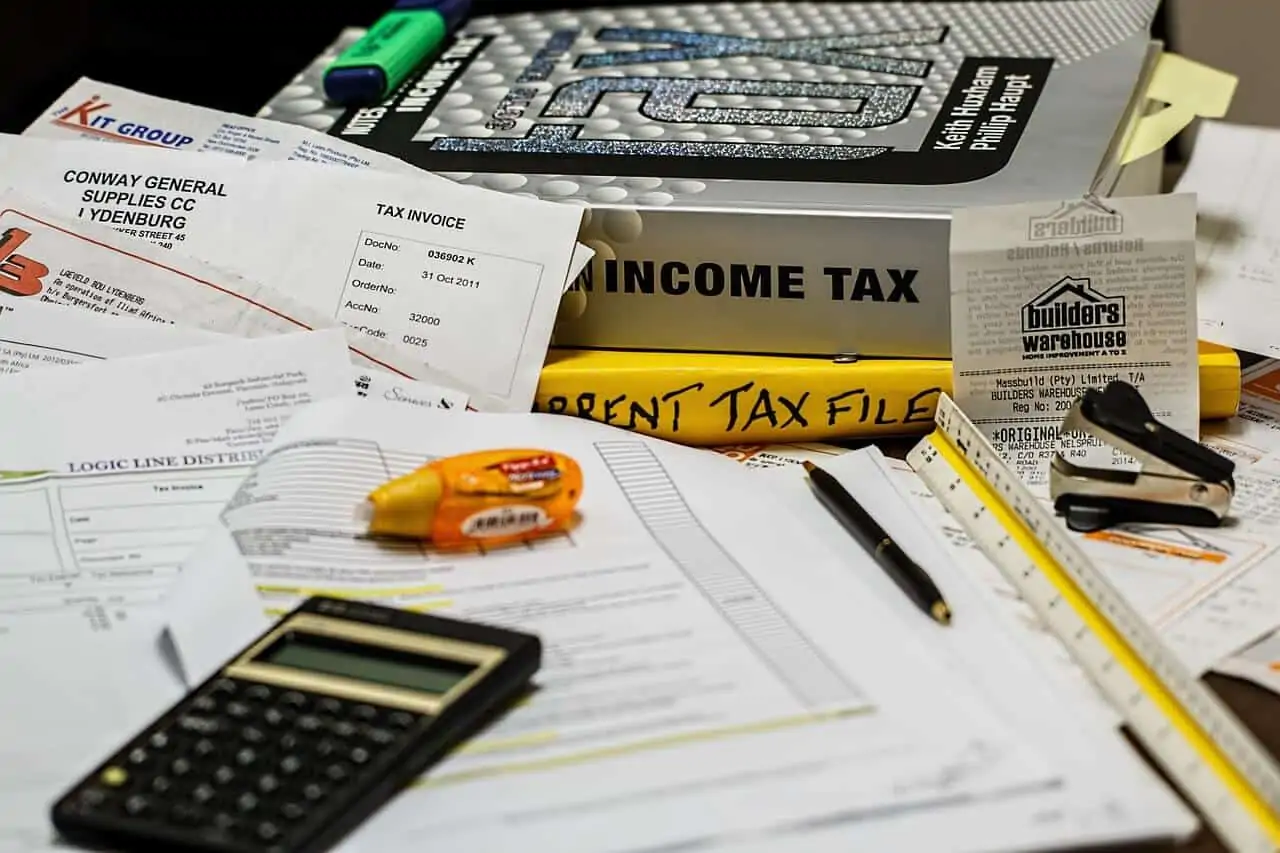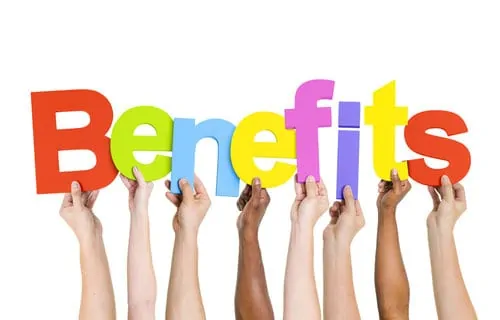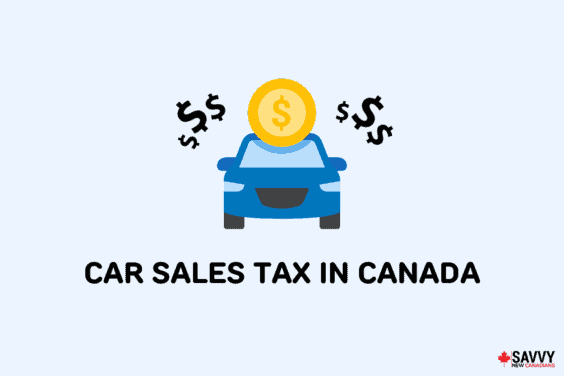Canada’s 2024 tax filing season kicks off on February 19, 2024, when the NETFILE and ReFILE services are re-opened.
The tax filing deadline for most Canadians (for the 2023 tax year) is April 30, 2024.
CRA will consider your return to have been filed on time if:
- It is received on or before April 30, 2024
- Your paper return is postmarked on or before April 30, 2024
For those who are self-employed or who have a spouse/partner who is self-employed, the deadline extends until June 15, 2024.
Filing your taxes on time is not just about getting your tax refunds on time. A late tax filing can result in monetary penalties and can also delay or affect your government benefits negatively.
For example, you could miss out on the Canada Child Benefit and GST/HST Credit.
Tax Filing Deadlines in 2024
Keep these dates in mind when filing your tax return in 2024:
- Individual tax return: April 30, 2024
- Self-employed tax return: June 15, 2024 (you must pay taxes owed by April 30, 2024, to avoid penalties)
- Tax installment payments: March 15, June 15, September 15, and December 15
- RRSP contribution deadline: February 29, 2024 (to claim deduction on your 2023 tax return)
How Long To Get Your Tax Refund?
If you file your tax return using NETFILE-approved tax software and have set up direct deposit payments with the CRA, you could receive your refund within 8 business days. If a cheque is being sent by mail, it may take around 2 weeks.
However, if you file a paper return, it could take up to 8 weeks to get your refund.
What Are The Penalties For Late Tax Filing?
The government wants every penny it is owed and wants it in good time. As such, there are penalties for filing a late tax return if you have an unpaid tax balance.
If you are getting a refund or your tax balance is zero, there are no penalties for sending in your return after the deadline date.
The penalties for filing your income tax and benefit return late when you owe the Canada Revenue Agency (CRA) are as follows:
Late Tax-Filing Penalty
An immediate penalty of 5% on your tax balance owing plus 1% of your balance owing per month for up to 12 months is levied by the CRA.
For example, if you owe the taxman $5,000 in taxes and send in your tax return 12 months late, your tax bill increases to:
- $5,000 x 5% = $250, plus
- $5,000 x 1% x 12 months = $600
Late-filing penalty = $850, increasing your overall tax bill to $5,850.
This amount does not include the additional interest penalty.
If you were late in filing your taxes in previous years as well, the CRA can increase your “late-filing” penalty to 10% of your tax balance, plus 2% per month up to a maximum of 20 months.
Late Tax-Filing Interest
In addition to the “late-filing” penalty, the government will charge interest on the amount of taxes you owe, including the penalties.
There are some instances where the CRA may waive penalties/interest on taxes owing if you can show that circumstances beyond your control prevented you from meeting your tax obligations, such as financial hardship, natural or man-made disasters, serious illness or accident, postal strike, etc.
Use Form RC4288 to request the penalty waiver.
Tax-Tip: Even if you cannot pay CRA what you owe them in taxes, it still makes sense to file your taxes before the May 1st deadline. Doing this means that you avoid the late-filing penalty and will only be on the hook for interest payments.
Related: File Your Taxes For Free Using TurboTax
Is Tax Filing Compulsory?
It depends.
If you don’t owe taxes to the government, you may not need to file a tax return. However, there are other reasons why you may need to file a return, and they include if:
- You are expecting a tax refund. CRA won’t chase you around if you don’t owe them. If you want what’s yours, i.e. tax refund, it is best to file your taxes.
- You are eligible for and want to collect government benefits, including GST/HST credits, Canada Child Benefit, GIS or Allowance benefits.
- You have an open Home Buyers’ Plan or Lifelong Learning Plan account through your RRSP.
- You are contributing to the Canada Pension Plan (CPP).
- To qualify for provincial benefits like the Manitoba Family Affordability Benefit and Alberta Affordability Payment.
There are a few other scenarios where a tax return filing is required even if you do not owe taxes. If in doubt, just file – there are many ways to do it for cheap or even free.
How To File Your Taxes in 2024
There are so many ways to file your taxes in 2024, depending on your circumstances or preferences. Some of the options available include:
Online Tax Software: There are many brands of tax software you can use for filing your taxes. Depending on the level of support you need, you can choose the free or paid versions.
Examples of tax software in Canada include TurboTax Online, Wealthsimple Tax, H&R Block Tax, Studio Tax, GenuTax, AdvTax, uFile, and CloudTax.
We have reviewed some of these options, and you can learn more about what they offer using the links below:
- TurboTax Canada (free and paid tax software options)
- WealthsimpleTax Free (free tax software)
- Best Tax Return Software in Canada
Tax software simplifies the filing process since you can connect to an existing CRA My Account and use the “auto-fill my return” feature to automatically populate a good portion of your information. This automated process also helps to reduce the likelihood of errors occurring.
Using online software means you can send your tax return directly to CRA through NETFILE and get your refund back in as little as 8 business days. Additionally, you will have your tax information for previous years stored online and easily accessible for reference in the future.
Paper Return via Mail: Some people prefer to do their taxes the old-fashioned way. In some years, the CRA mails tax forms to paper filers to hasten the process. If you prefer to file a paper return and did not receive them in the mail, you can order a paper copy or download them starting in January 2024.
Paper filers expecting a tax refund will have to wait for up to 8 weeks.
CRA File My Return: For the 2024 tax season, CRA offers to help low-income individuals complete their tax returns via automated phone service. This service is free, and eligible persons will be notified through the mail.
Community Volunteer Income Tax Program: Through this program, tax clinics across Canada assist individuals with modest incomes and simple taxes with completing their tax returns. It is available via video conference, phone, and document drop-off arrangements.
Read more about the free tax return software available to Canadians.

2024 Personal Tax Changes and Tax Filing Deadline
The tax filing deadline in Canada in 2024 is April 30, 2024. Personal tax changes for this year include the following:
RRSP Contribution Limit: The RRSP annual limit for 2024 is $31,560 ($30,780 in 2023). You can still make RRSP contributions for the 2023 tax year during the RRSP season that ends on February 29, 2024.
TFSA Contribution Limit: The annual TFSA limit for 2024 is $7,000. If you have been eligible to contribute to a TFSA since 2009, your total contribution room is now $95,000 (assuming you have made no withdrawals or re-contribution so far).
CPP Contribution Rates: This remains at 5.95% in 2024 for employees and employers when the maximum annual pensionable earnings is $68,500 or lower. The maximum employee CPP contribution for the first threshold in 2024 is $3,867.50 (up from $3,754.45 in 2023).
Employees who earn more than $68,500 are subject to an additional CPP contribution between $68,500 and $79,400 at a rate of 2%, resulting in up to an extra $188 in contributions.
EI Rates: The maximum employment insurance premium in 2024 is $1,049.12 (up from $1,002.45 in 2023).
2023 Personal Tax Changes and Tax Filing Deadline
The tax filing deadline in Canada in 2023 is May 1, 2023. Personal tax changes for this year include the following:
RRSP Contribution Limit: The RRSP annual limit for 2023 is $30,780 ($29,210 in 2022). You can still make RRSP contributions for the 2022 tax year during the RRSP season that ends on March 1, 2023.
TFSA Contribution Limit: The annual TFSA limit for 2023 is $6,500. If you have been eligible to contribute to a TFSA since 2009, your total contribution room is now $88,000 (assuming you have made no withdrawals or re-contribution so far).
CPP Contribution Rates: This increases from 5.70% to 5.95% in 2023 for both employees and employers. The maximum employee CPP contribution for 2023 is $3,754.45 (up from $3,499.80 in 2022).
EI Rates: The maximum employment insurance premium in 2023 is $1,002.45 (up from $952.74 in 2022).
Tax-Free First Home Savings Account (FHSA): Eligible Canadians can save up to $40,000 for their first home using an FHSA (up to $8,000 annually) starting in April 2023.
Related reading:
- Work From Home Tax Deductions
- Late Tax Filing Penalties
- GST Installment Payments for Businesses
- Quarterly Corporation Tax Payment Schedule
2022 Personal Tax Changes
The tax filing deadline in Canada in 2022 is on May 2, 2022.
2021 was another extraordinary year. Unlike previous years where you probably only focused on getting your T4 slip, and that was it, your 2021 tax return filing may look a bit different.
Canadians who received COVID-19 financial benefits are required to report the income on their tax return.
For example, you must report income received from the Canada Recovery Benefit (CRB), Canada Recovery Sickness Benefit (CRSB), and Canada Recovery Caregiving Benefit (CRCB). Recipients of these benefits will get a T4A slip from CRA.
The tax was withheld at source for these three benefits; however, depending on how much you earn from other sources, you may still owe taxes or receive a refund.
For the 2022 tax year, the following updates are applicable:
RRSP Contribution Limit: The RRSP annual limit for 2022 is increasing to $29,210 from the previous $27,830 in 2021.
Basic Personal Amount: The federal basic personal amount in 2022 is up to $14,398 if your income is $155,625 or less. A clawback of the personal amount applies to higher taxable incomes and is $12,719 if you earn $221,708 or more.
TFSA Contribution Limit: The annual TFSA limit for 2022 is unchanged at $6,000. If you have been eligible to contribute to a TFSA since it was implemented in 2009, your total contribution room is now $81,500.
Federal Tax Brackets: The federal tax rates and brackets for 2022 are as follows:
- Up to $50,197: 15%
- $50,197.01 to $100,392: 20.50%
- $100,392.01 to $155,625: 26%
- $155,625.01 to $221,708: 29%
- $221,708+: 33%
Find out what your provincial tax rate is.
2021 Personal Tax Changes
2020 was an extraordinary year. Unlike previous years where you probably only focused on getting your T4 slip, and that was it, your 2020 tax return filing may look a bit different.
Canadians who received COVID-19 financial benefits must report the income on their tax return.
For example, you must report income received from the Canada Emergency Response Benefit (CERB) and Canada Emergency Student Benefit (CESB). Recipients of these benefits will get a T4A slip from CRA.
Other benefits that have been paid in the 2020 tax year include the following:
- Canada Recovery Benefit (CRB)
- Canada Recovery Sickness Benefit (CRSB), and
- Canada Recovery Caregiving Benefit (CRCB)
Tax was withheld at source for these three benefits; however, depending on how much you earn from other sources, you may still owe taxes or receive a refund.
For the 2021 tax year, the following updates are applicable:
RRSP Contribution Limit: The RRSP annual limit for 2021 is increasing to $27,830 from the previous limit of $27,230 in 2020. You can still make RRSP contributions for the 2020 tax year during the RRSP season that ends on March 1, 2021.
Basic Personal Amount: The federal basic personal amount in 2021 is up to $13,808 if your income is $151,978 or less. A clawback of the personal amount applies to higher taxable incomes and is $12,421 if you earn $216,511 or more.
TFSA Contribution Limit: The annual TFSA limit for 2021 is unchanged at $6,000. If you have been eligible to contribute to a TFSA since its implementation in 2009, your total contribution room is now $75,500.
Federal Tax Brackets: The federal tax rates and brackets for 2021 are as follows:
- Up to $49,020: 15%
- $49,020.01 to $98,040: 20.50%
- $98,040.01 to $151,978: 26%
- $151,978.01 to $216,511: 29%
- $216,511+: 33%
Home Office Expense Deduction: For the 2020 tax year, the CRA has simplified the process for claiming work-space-in-the-home expenses if you worked from home due to COVID-19.
You can claim up to $400 in expenses without submitting a T2200 Form.
2020 Personal Tax Changes
The RRSP dollar limit for 2020 is increasing to $27,230 from the previous limit of $26,500 in 2019. If you have RRSP contribution carried over from 2019, you have until February 28, 2020, to make those contributions and claim them as a deduction on your 2019 tax return.
The standard basic personal amount (BPA), i.e. your tax-free allowance for 2020 is $12,298, up from $12,069 in 2019. There are plans by the Liberal government to get the BPA to $15,000 by 2023. Based on the draft proposals, the BPA will be $13,229 in 2020, $13,808 (2021), $14,398 (2022) and $15,000 (2023).
The enhancements to the basic personal amount are targeted at reducing taxes for middle-class Canadians and will phase out at incomes exceeding $150,000.
Speaking of tax brackets, for 2020, the federal tax brackets are:
- $0 to $48,535: 15%
- over $48,535 up to $97,069: 20.5%
- over $97,069 to $150,473: 26%
- over $150,473 to $214,368: 29%
- over $214,368: 33%
Increases in CPP payments continue in 2020 with employers and employees making a contribution of 5.25% on up to $58,700 in pensionable earnings. The basic exemption amount for 2020 remains at $3,500. The contribution rate for self-employed will be 10.5% (i.e. 5.25% x 2).
First-time homebuyers can withdraw up to $35,000 from their RRSP tax-free and put it towards the purchase of a home under the revamped Home Buyers’ Plan. A couple can withdraw up to $70,000.
If you subscribe to digital news, you can now claim up to a $75 in tax credit every year on up to $500 paid in fees.
2019 Personal Tax Changes
Some of the new tax developments that will come into effect in 2019 and which will affect your tax filing in future years include:
The small business tax rate has been reduced from 10% to 9%. Also, note that there is now a lower limit to the passive income small business owners can keep before higher corporate tax rates kick in.
Low-income workers will receive an increase in Canada Workers Benefits (a refundable tax benefit formerly known as the Working Income Tax Benefit).
New carbon taxes have been introduced, and fuel costs are expected to go up starting in April 2019. Direct tax rebates will be available to residents of provinces that do not yet have an agreement with the federal government (Manitoba, Ontario, New Brunswick, and Saskatchewan).
The Enhanced CPP goes into effect with rates increasing to 5.1%. The maximum pensionable earnings for 2019 is $57,400. While CPP payments have increased, EI premiums will drop by 4 cents for every $100 of insurable earnings (i.e. from $1.66 to $1.62 per $100).
The RRSP deduction limit for 2019 increases to $26,500 (up from $26,230 in 2018).
Personal Tax Changes in 2018
Some of the tax changes for the 2018 tax season include old tax credits that are now eliminated and some new/improved tax credits.
Eliminated tax Credits
Education and Textbook Amounts: The Federal education and textbook credits have been eliminated. Carryovers from previous years can still be used or carried forward.
Children’s Credits: There are no more credits for children’s arts and fitness programs.
Public Transit Tax Credit: You can claim your monthly bus/subway passes up until June 30, 2017. Any passes after this date are not eligible for this tax credit since it has been scrapped as well.
New and Improved Tax Credits
Canada Caregiver Amount: The tax credits available to anyone who cares for an infirm family member (i.e. The Family Caregiver Amount, The Caregiver Amount, and The Amount for Infirm Dependants aged 18 or older) have now been combined into one tax credit – The Canada Caregiver Amount.
Medical Expenses Tax Credit: Individuals who have fertility-related medical expenses may now be able to claim some of these costs on their tax returns.
Disability Tax Credit: Nurse practitioners are now on the list of medical professionals who can certify individuals with disabilities for the Disability Tax Credit.
Related: Tax Deductions For Freelancers and Home-Based Businesses




Good job
How far back can I file if I have not filed for a few years? Is it 7 years, 10 years? If I have a 2010 return that I did not file and it is Nov 2019 can I still file that?
@ William: You can file a tax return for previous years and I don’t believe there is a set limit on how far back you can go.
CRA has a voluntary disclosure program that may even help you waive some of the taxes due based on some conditions.
“The Voluntary Disclosures Program (VDP) gives you a second chance to correct a tax return you previously filed or to file a return that you should have filed.” – CRA
OK. I was told by someone it is a hard ten years. But I dont know the exact timeline for that. Does that mean I Have until Mar 31 2020 to file a 2010 return?
For sure there is $ there for you. Do not be afraid! GO FOR IT. Some of my clients have received $5,000 or more for 5 o 6 years.
Great… Is there a way to e-mail you?
In 2019, I did not file my taxes, even though I had my T4. I owe nothing since I had an agreement with my employer to overpay taxes on each paycheque to get a larger return back. So the government definitely isn’t trying to find me because they have money for me.
Will I be able to get a return from the 2018 tax period still?
I am going to do my 2019 T4 tax stuff this weekend, just wanna know if my 2018 stuff is still relevant
I HAVE MY TAX BILL IT SAID PAY APRIL 30TH 2020, OR IS IT EXTENDED?
I have a question regarding the carbon tax rebate. Does it only apply one per household? What if we forgot to apply for it? Can you resubmit your income tax again using a tax software?
@Marion: Yes, it’s one credit per household and you can resubmit your tax return using a tax software. CRA will send you a second notice of assessment.
I’ve lost my t4 and can’t file? How can I get my old one back and file
When is the extra credit going to be received on the GST
@Robert: The date hasn’t been announced yet, but I suspect it could be added to the July payment.